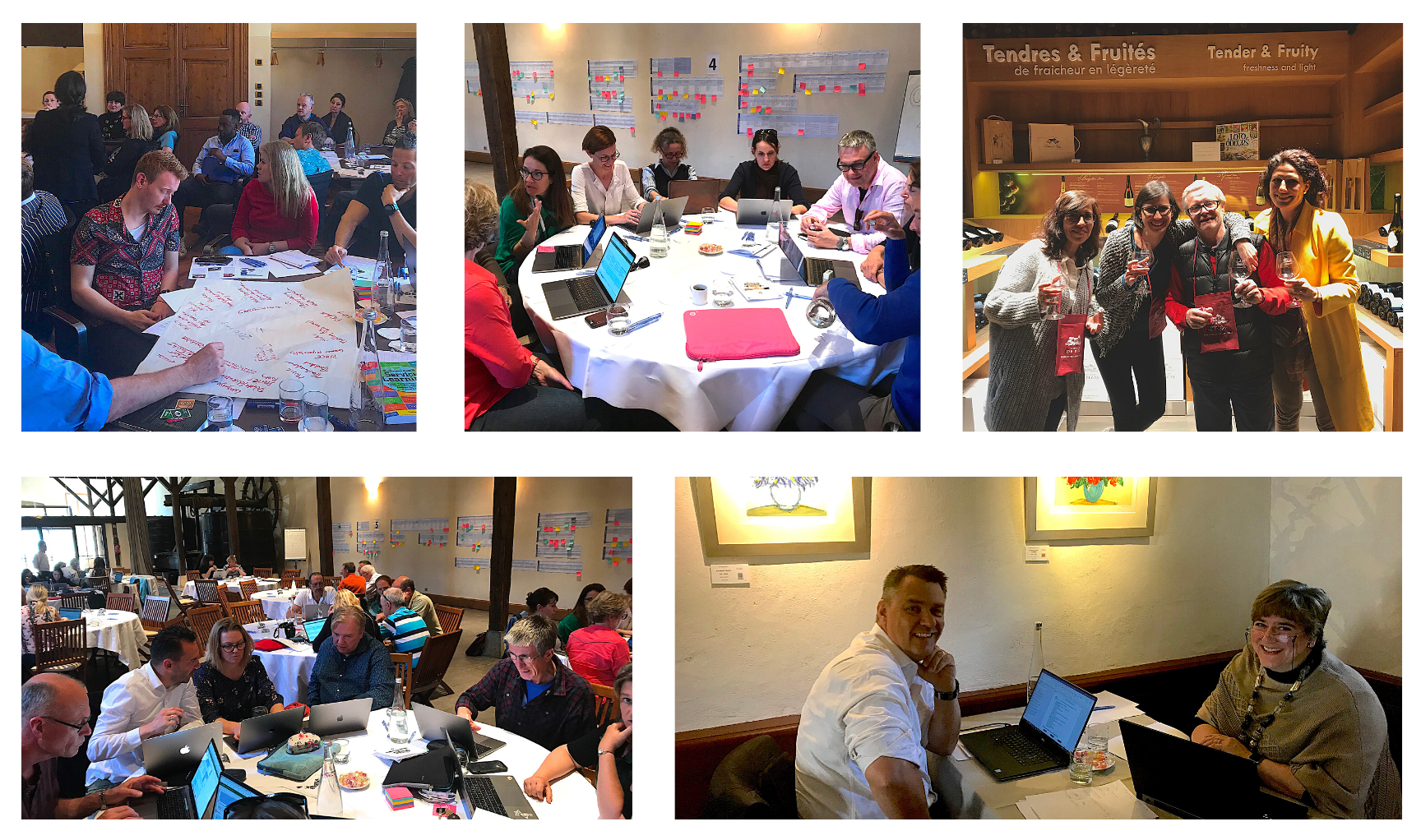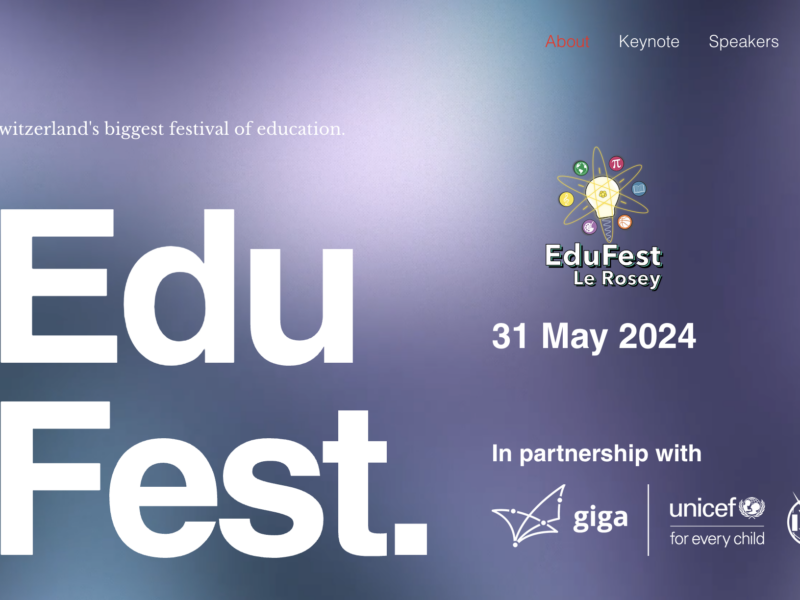From 27-29 March 2019, 100 teachers came together at Château de Pizay for a PD retreat that included plenary sessions, workshops, small group work, planning time, plus a number of leisure activities. Set on a beautiful location in the Beaujolais region, the château’s grounds and facilities (including a spa and winery) provided moments of détente between the intense professional sessions.
The retreat had three main professional objectives, as identified by the school’s curriculum committee:
- To provide the time and opportunity to work within and across disciplines.
- To reflect on meaningful integration: academics, language development in the classroom, service learning and technology.
- To complete a Year-at-a-Glance document for each course.

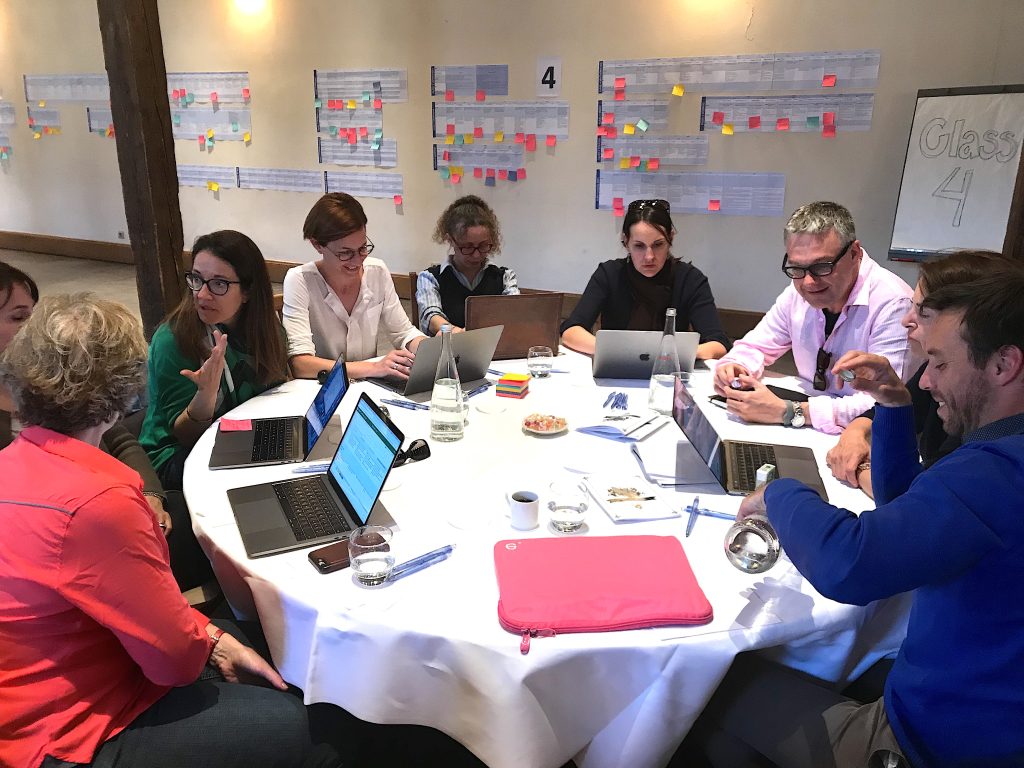
The thinking behind the choice of these four areas of integration was directly linked with the school’s current curriculum review. As we moved from the Subject Overview documents (which provide a “bird’s eye view” of each discipline) to the more detailed Year-at-a-Glance (Y@G) document (which includes the chronology for each course per year level), it was important to consider elements which could have an impact on the sequencing of any course. The workshops, we hoped, would provide teachers with the opportunity to reflect on why integrating each aspect would help enhance a students’ learning by creating an overall more coherent programme.
To achieve our goal of meaningfully integrating four areas into the Y@G document (and by “meaningful” we meant allowing for natural connections to guide the planning, not forcing artificial connections), we invited external presenters on the four areas: academics, languages development, service learning and technology. At the opening session Nancy Fairburn, the school’s curriculum consultant, explained what integration is and why it enhances student learning. We asked teachers to focus on academic integration for that session and to become familiar with the full academic programme for a specific year level (Classes 5-2). The current academic plan for the 2019-20 school year was printed on large banners, and teacher were invited to use post-it notes to write down possible inter-disciplinary links, which would be addressed again during Friday’s sessions.
Eowyn Crisfield, an expert on language learning at international schools, gave a keynote presentation that highlighted current research findings on how multilingual learners develop language proficiency, including what it means to be bilingual, the impact of total immersion programmes and the role of strengthening the home language to support learning in other disciplines (and other languages). She also gave a workshop on the importance of having an integrated school-wide language programme to address the needs of our students, providing teachers with a Resource Pack (for Senior and Junior schools) to help them begin planning a sequence of key language structures that would support the development of academic language within their subject.
Erin Threlfall and her translator Ben Cornet offered a workshop on Service Learning that picked up from our SL coordinator’s introduction to SL at our September INSET. She offered an exercise to encourage teachers in all disciplines to make meaningful connections not only to real-world issues that could spark SL projects, but also to realise the importance of integrating the academic and interpersonal skills that could support these projects, including research skills, interview/survey skills, media skills, etc. She also shared resources to inspire our students, and to encourage teachers to integrate useful skills into their academic planning.
Lise Galuga and Afroditi Skevi helped teachers familiarise themselves with a range of technology tools, and invited them to consider how these can be meaningfully integrated into our planning. They presented Dr. Ruben Puentedura’s SAMR model, which encourages teachers to move beyond using technology to “Enhance” student learning (with tasks that use Substitution and Augmentation) to “Transform” our teaching (through Modification and eventually Redefinition of the learning task). Through an interactive activity and gallery walk, the presenters also highlighted how different classroom activities can explicitly support the development of technology skills such as computational thinking.
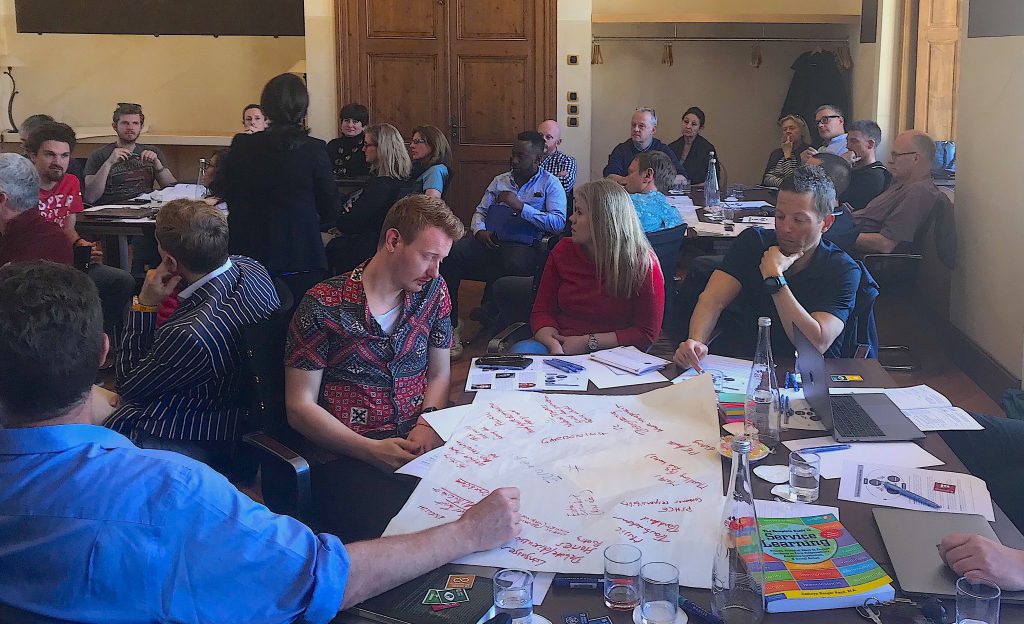
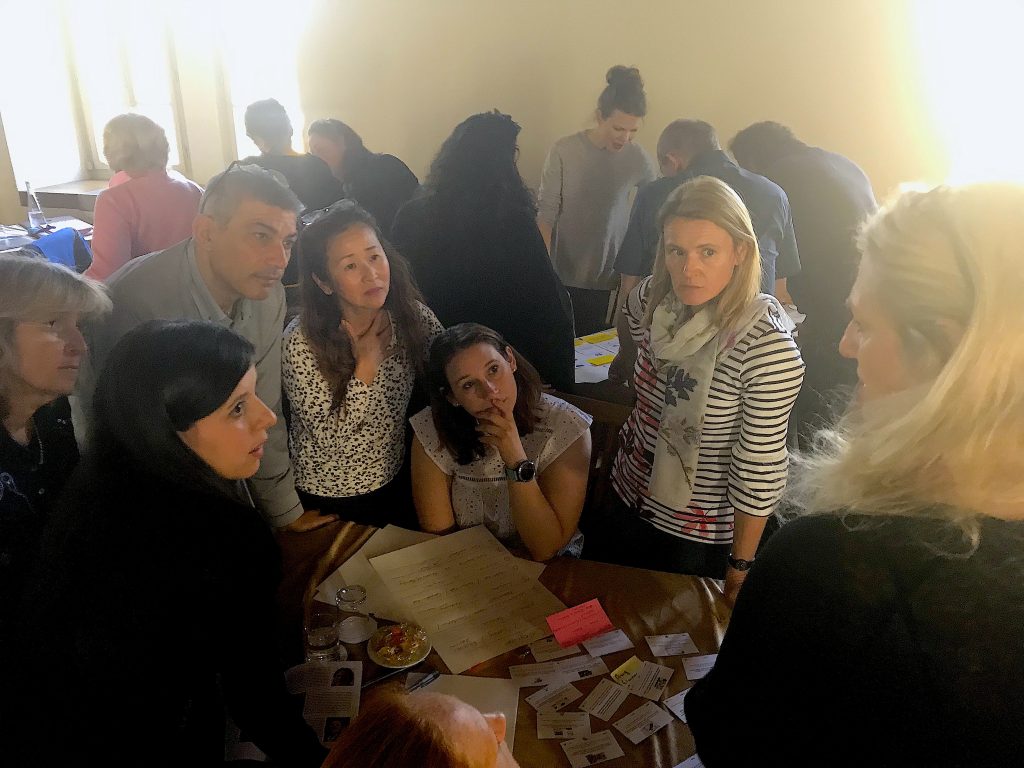
When we had the opportunity to bring secondary school teachers back together, we focused on providing time and support for individuals to work within their departments, considering the progression of the subject-specific language structures to develop, meaningful links to service learning in relation to any unit, and connections to technology tools that could be documented in the Y@G. Finally, we returned to the academic connections, and offered time for teachers to speak across departments and determine possible interdisciplinary links to explore during the spring term.
At the same time, the Junior school worked on their own programme: thematic planning led by Jo Spencer, vertical alignment with support from Nancy Fairburn, work in bilingual groups and PSHE planning were all scheduled during the INSET. In addition to strengthening their coherent and well-articulated programme for students in classes 9-6, teachers also had the opportunity to attend the Technology and Languages workshops, as well as reviewing the Y@G documents in the senior school, with particular attention to class 5 for continuity.
The Sports department, led by Eric Pedat, also worked on clearly documenting a Rosey Sports Programme with the focus on the most popular sports offered. Additionally, they discussed future needs for equipment and facilities on campus. They participated in the academic connections session as well as service learning trainings, contributing to the cross-curricular discussions.
It is a source of pride that our teacher-led sessions are so well received at INSET, and teachers often comment that attending them was a highlight of the entire retreat. This year, David Bowman offered a Socratic seminar entitled, “Is Our Curriculum Rational and Ethical?”; Victoria Giorgini invited colleagues to “Une rencontre autour du théâtre”; Chris Green provided “A Taste of TOK”; Stephanie Lin Mayor engaged teachers around “The Importance of Emotional Intelligence”; Kathy Naftalin and Yannick Gallardo welcomed us to a “Learning Support Drop-in Clinic”; and Ralph Tichler encouraged us to share “Engaging Activities for Active Lessons”. Our professional day certainly finished with a bang!
With 14 hours of intense professional work, the staff also enjoyed some well-deserved pauses and leisure activities: in addition to spa visits and the parcours œno-sensoriel, staff members offered relaxation and yoga activities, a morning jog and an evening nature walk, plus a memorable karaoke and disco night! Special thanks to Sasha Trotsenko and the Activities committee: Flavie Didier-Laurent, Sophie Durlot, Yannick Gallardo and Fred Joly.
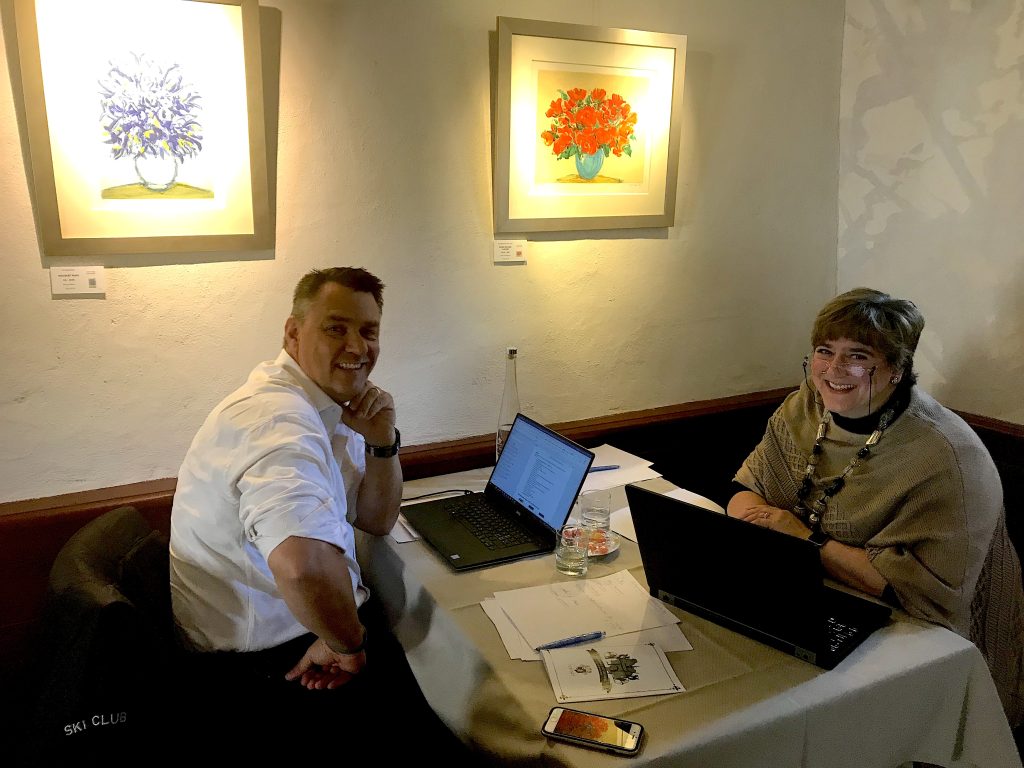
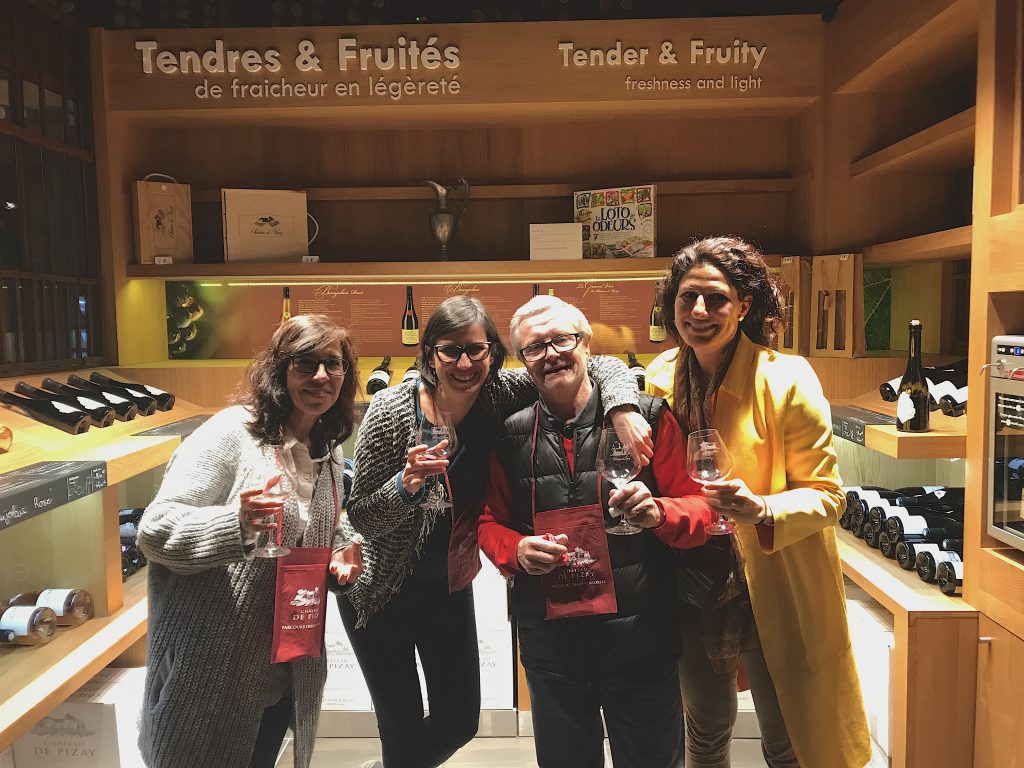
On behalf of the curriculum committee (Rob Gray, Christophe Gudin, Kim Kovacevic, Amy Liversidge, Laëtitia Peynon and Afroditi Skevi), we want to thank all of those involved in making this a great event: it reminds us, once again, of the special community we are a part of. What I am left with is clear evidence that we all want what is best for the students in our care, and that we take our professional responsibilities seriously but also with much love.
Have a great start of term!
Eliana Marcenaro
